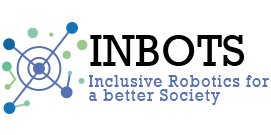
INBOTS representatives Amparo Grau and Yolanda Sánchez-Urán atended to the Summer Course ‘Technological Revolution and the future of labour‘ hosted by Universidad Complutense de Madrid on July 2nd and 3rd. A session where experts from diverse matters discussed about the fears in society about excessive robotization in the world of work and the subsequent impact of employment on the future clash with the unstoppable advance of new technologies and their adaptation in the business world, with also poses a threat to work as a universal right for many.
During the session, the Professor Sánchez-Urán Azaña spoke about “Inclusive Robotics” and the impact on the management of working relationships. She defended that the challenge is to put technology at the service of the human being and with the focus on physical and/or cognitive interaction between humans and robots, to provide a minimum imperative regulation to respond to the impact on the labour market. The principle of socially and legally responsible technological innovation (robotics) requires public authorities to adopt measures that promote technological development and protect the values that are desired by humans. In the transition period, a legal ‘safety net’ of protection and security of human labour must be ensured. In particular, she recommends the adoption of the principle of “digital” equality and non-discrimination and considers it necessary to deepen affirmative or positive action measures in favour of human work.
On the other hand, from a tax perspective, the Professor Grau Ruiz pointed out how the most immediate challenges related to the occupational and geographical mobility of workers should be addressed, as well as their continuous training in advanced digital skills, in line with recent proposals from the European Union. To this end, the private and public sectors should be encouraged to work together as appropriate. She also stressed the need not to focus the debate exclusively on broadening the tax base in order to maintain social protection systems in their current form, since more efficient action can be achieved through intelligent incentives whose effectiveness can be traced.
From the Spanish ILO, Judith Carreras has recalled the importance of also taking into account environmental aspects in the midst of the technological revolution (due to the growing consumption of energy and finite mineral resources, among others), and Joaquín Nieto, Director, has debated with representatives of different parliamentary groups on their different contributions in this area.
The closing ceremony of the event was attended by María Luz Vega, Coordinator of the ILO’s Future of Work Initiative, who highlighted the efforts of this institution to achieve, as in other historical moments, a transition that seeks social justice and respect for human dignity.

